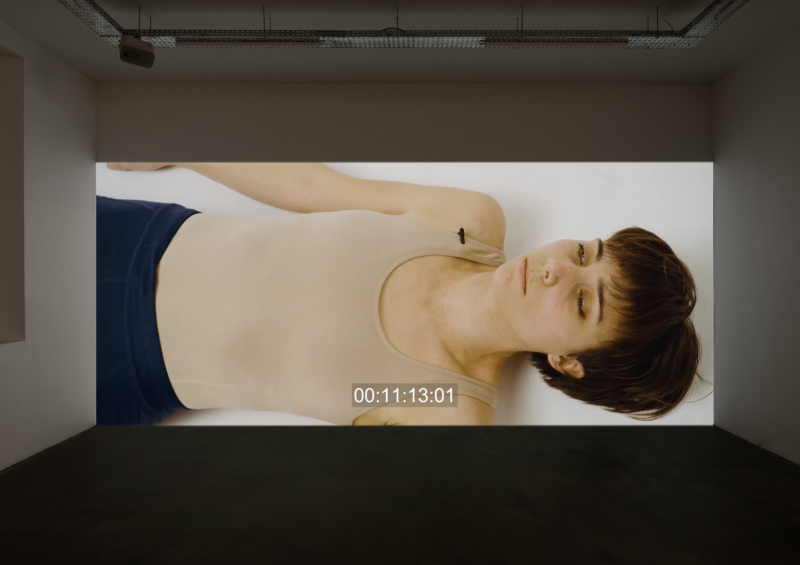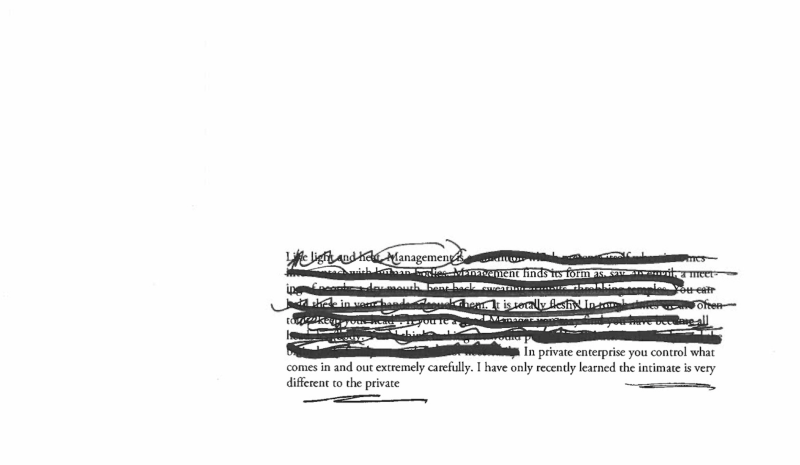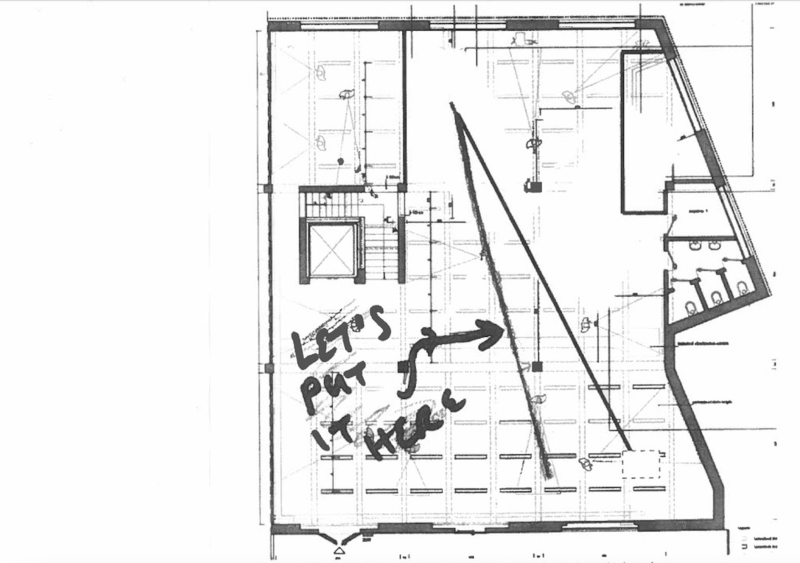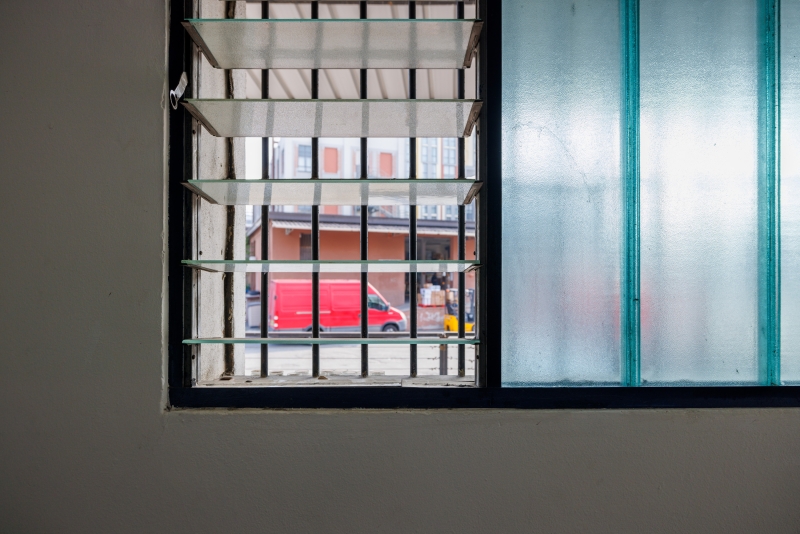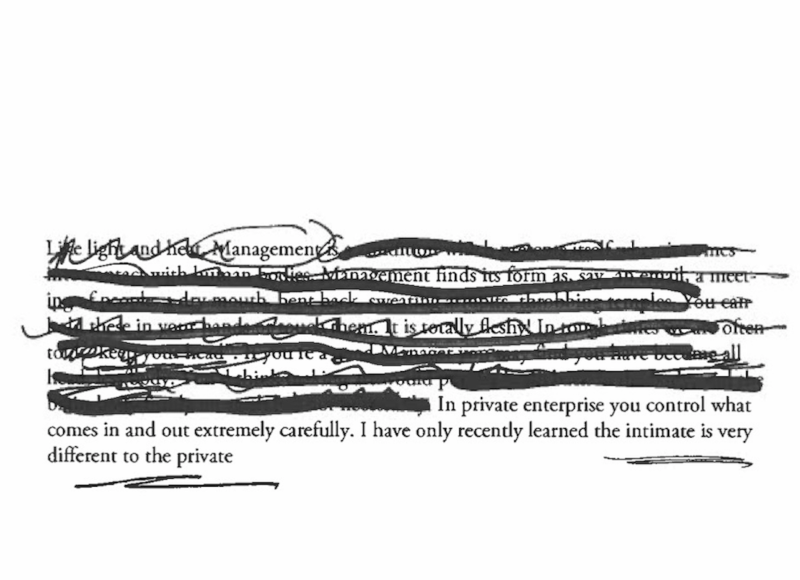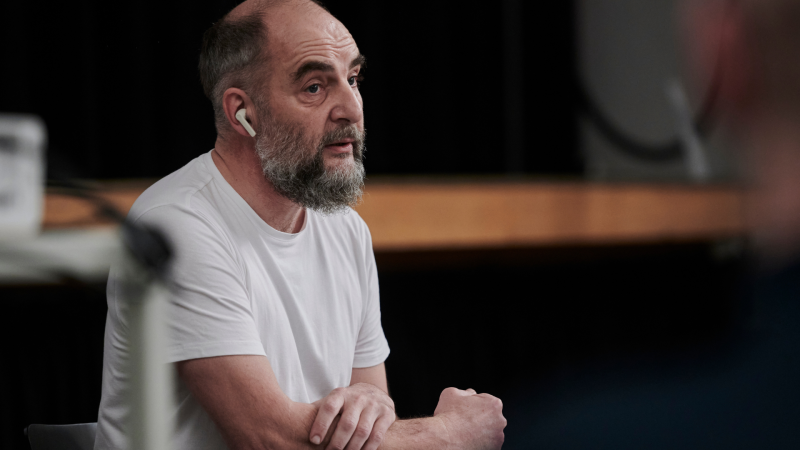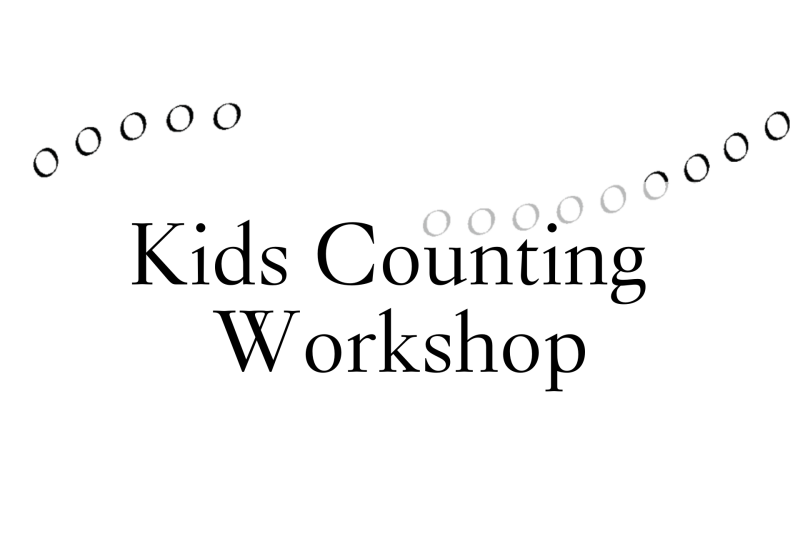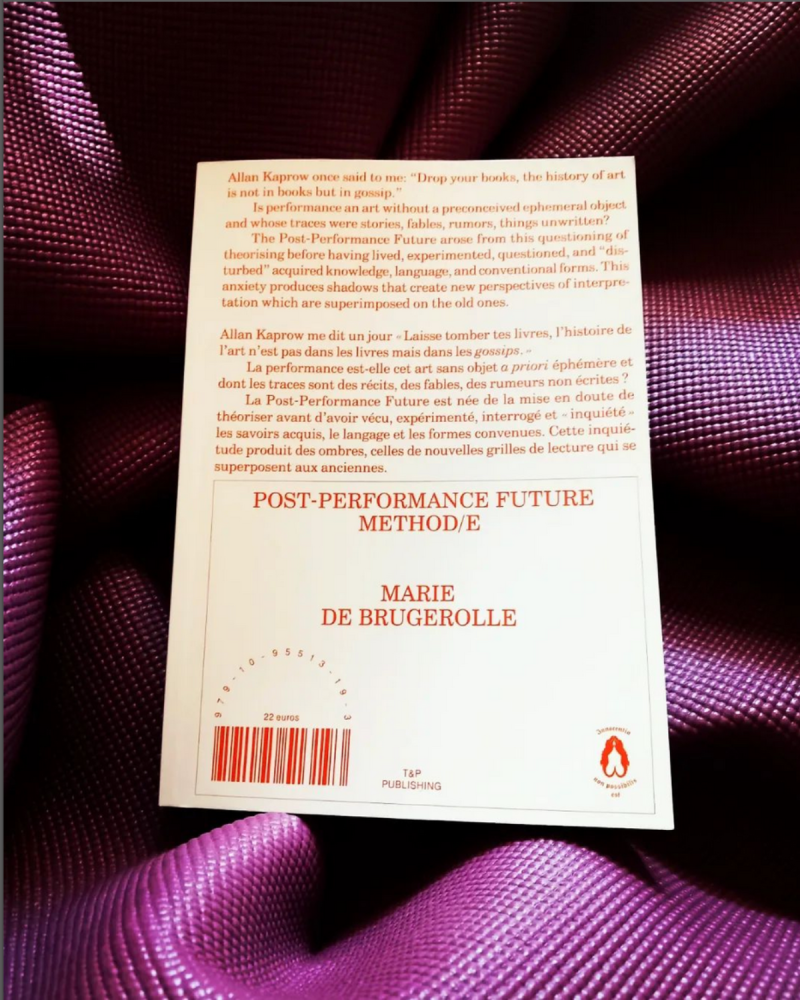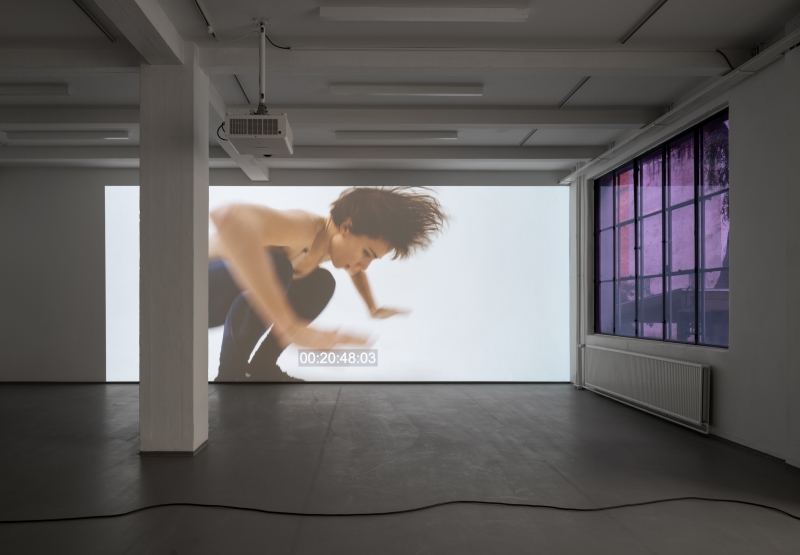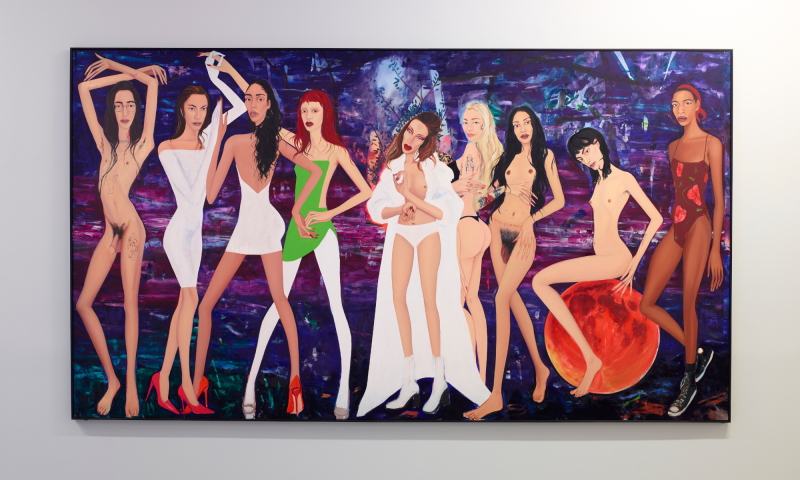Since 2021, the internationally acclaimed visual artist Cally Spooner has been an associate research fellow at O—Overgaden, developing a long-term itinerant project —moonlighting as choreography, sound, book, rehearsal, philosophy study, and opera.
A main focus of Spooner’s project is asking how “performance”—the 24/7 demand to competitively “perform” (well) at all times, whether on social media, at work,or through efficient sleep—has come to govern our social bonds. And, not least, asking how such metric governance might be resisted by adopting other models of time. Can alternative temporalities subvert standard, constantly ticking, ‘chrono-normative’ clock time by appearing dead, unscheduled, out of sync, undetectable, in a state of rehearsal, or even by insisting on durational longevity?
As an installment of this ongoing project, the exhibition at O—Overgaden Duration explores the potentials of “durational” or long-term collaborations. Spooner’s existing work DEAD TIME (Maggie’s Solo) (2021), a large-scale, architectural projection of a solo dance to camera, serves as a main work as well as a backdrop against which new work and conversations develop. Among these, protagonist of the film and long-term collaborator, dancer Maggie Segale, evolves DEAD TIME (Maggie’s Solo) into new choreography during a three-day public workshop held on September 21–23 (3–5pm); Will Holder closes an ongoing talk series with Spooner in O—Overgaden’s O—Rooom; and Spooner workshops an immersive soundtrack with local children.
Incessantly audible in the exhibition, the 43:59-minute DEAD TIME (Maggie’s Solo) is structured by a loud beep that repeats every 42 seconds. Like the beep in the submarine classic Das Boot, the harrowing soundtrack of time ticking away holds the potential to awaken a feeling that we (the audience members) are under pressure, the dancer is under pressure—time is pressure. Following this “tune”, the choreography opens with a high-pitched mix of contemporary gladiatorial activities: jabs, burpees, and rugby moves. Even running in circles while on the floor, Maggie’s movements suggest a painful and pointless circular acceleration, a self-inflicted, impossible pace.
Maggie’s movements follow the repeated choreographic instructions of a voice (Spooner’s voice): “Jackal”, “Stop”, “Still Life”. Broadcast in the first space, this soundtrack is encountered long before the large-scale screen in the back space becomes visible. The uncontainable sound of Maggie’s body thus spills over, engaging the visitor before the sight of the film. On screen, the extreme close-ups of Maggie’s limbs, heavy breathing, and intense studies of her face are chased by the cinematographer carrying a wearable body camera. Falling in and out of focus, the images flicker between rehearsal documentation and rushes of a beautifully composed “still life” or rugby moves caught in film shots of high commercial quality.
Crawling out into O—Overgaden’s transitional spaces—the street entrance, event space (O—Rooom), and stairway—a new sound installation, Principles (2023–), provides an entry into this scenario. Collaborating with young children, the piece contains their fussing voices, cheerfully counting, excitedly showing (off) their new skills. The immediately endearing, recognizable sound of children counting (learning how to cut lived duration into measurable time) makes it difficult not to count along. Synced to the repeating beep, the piece invites a long series of questions about when and how children are socialized into the metric norms and pace of society; when and how school grades, economics and math set in—these institutional, societal standards or the so-called “reality principle”, prompting the title Principles.
Cally Spooner (b. 1983, UK) is currently PhD research fellow at O—Overgaden, in association with the Royal Danish Academy of Fine Arts and the University of Copenhagen (2021–24). Spooner’s series of essays A Hypothesis of Resistance—the last of which will focus on Duration as does her exhibition—has been workshopped collectively at O—Overgaden and is published by Mousse Magazine. Spooner has recently presented shows at the Art Institute of Chicago; the Swiss Institute, New York; Castello di Rivoli, Turin; the New Museum, New York; and the Stedelijk Museum, Amsterdam.
The exhibitions are supported by
- Events
![cally_spooner_bigger.png]() TalkAugust Circle by Cally Spooner
TalkAugust Circle by Cally Spooner ![til-web.png]() SeminarCANCELED: Cally Spooner: DEADTIME TALK #5 Duration
SeminarCANCELED: Cally Spooner: DEADTIME TALK #5 Duration![cally-spooner_event2-website.png]() SymposiumCally Spooner: DEADTIME TALKS #2 Rehearsal
SymposiumCally Spooner: DEADTIME TALKS #2 Rehearsal![b9a1812.jpg]() SymposiumCally Spooner: DEADTIME TALKS #3 The Present Tense
SymposiumCally Spooner: DEADTIME TALKS #3 The Present Tense![skarmbillede-2023-03-21-kl.-10.18.25.png]() SeminarCally Spooner: DEADTIME TALKS #4 Undetectability
SeminarCally Spooner: DEADTIME TALKS #4 Undetectability![callyspooner_overgaden_symposium_deadtime.png]() SymposiumCally Spooner DEADTIME TALKS #1 Asynchronicity
SymposiumCally Spooner DEADTIME TALKS #1 Asynchronicity![5-2.png]() WorkshopKids Counting Workshop w. Cally Spooner
WorkshopKids Counting Workshop w. Cally Spooner- OpeningOpening: Anna Rettl & Cally Spooner & Rasmus Myrup
![design-uden-navn-50.png]() Book TalkPOST PERFORMANCE FUTURE METHOD/E: Marie De Brugerolle & Cally Spooner
Book TalkPOST PERFORMANCE FUTURE METHOD/E: Marie De Brugerolle & Cally Spooner![3.duration_cally-spooner_overgaden_009_photo-by-david-stjernholm.jpg]() Open studioThree-day workshop: Cally Spooner x Maggie Segale
Open studioThree-day workshop: Cally Spooner x Maggie Segale- News
![apolonia-beskaret.png]() AnnouncementO—Overgaden exhibitions in the coming year
AnnouncementO—Overgaden exhibitions in the coming year - Press





